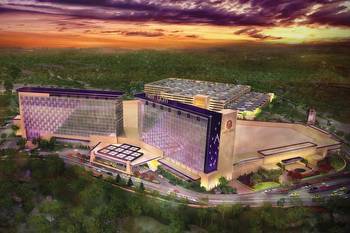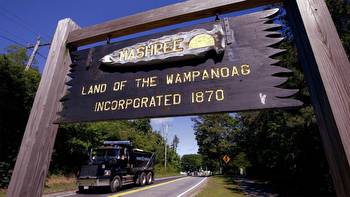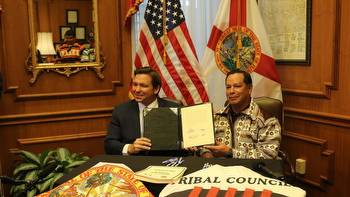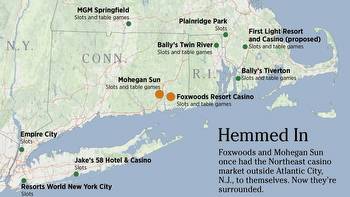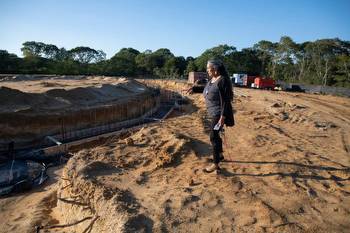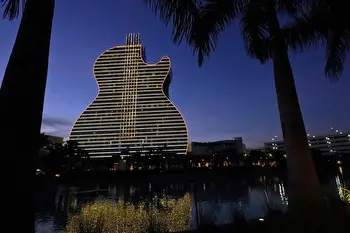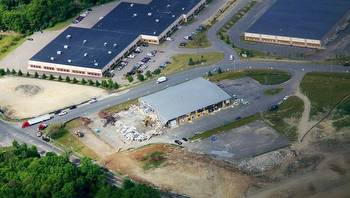Mashpee Wampanoag reservation regains legal status; Taunton casino project’s future unclear

The Mashpee Wampanoag Tribe regained legal status for its reservation land in southeastern Massachusetts this week following a decision by the US Department of the Interior, reopening the door for the tribe to continue exploring plans for a $1 billion casino in Taunton.
The ruling, issued Wednesday, marks the end of a years-long legal saga and allows the tribe to move forward with crucial needs, such as fighting water pollution on the land and improving housing for its 2,600 enrolled citizens. The reservation’s legal status had been in limbo since March 2020 when the Interior Department, then under Donald Trump’s administration, ordered the land to be taken out of trust.
Brian Weeden, chairman of the Mashpee Wampanoag Tribal Council, welcomed the ruling but said it did not fully redress the land stolen from the tribe. The tribe’s reservation land — about 320 acres in Mashpee and Taunton — makes up only half of 1 percent of the tribe’s ancestral territory, he said.
“I think it’s a small step in the right direction when we talk about justice,” said Weeden, who at 28 became the tribal council’s youngest chairman ever elected earlier this year.
“It’s bittersweet,” he continued. “It’s a happy and joyous time but it is also a time for us to reflect on our ancestors who paid the ultimate sacrifice for us to still be here.”
The Mashpee Wampanoag — which means People of the First Light — were annihilated by English settlers in the 17th century. Back then, the tribe had as many as 40,000 people across 67 villages, and their land covered all of what is now Cape Cod and stretched from Weymouth to parts of Rhode Island, according to the Plimoth-Patuxet Museum in Plymouth. The tribe was forced onto land that later became the town of Mashpee. Centuries passed before the tribe finally gained federal recognition in 2007.
The land was moved into a trust in late 2015 by the Interior Department under Barack Obama’s administration. A group of residents in East Taunton filed a lawsuit challenging the administration’s authority to grant reservation status to the tribe’s land, and in 2018, the Trump administration determined that the Mashpee Wampanoag did not qualify as “Indian” under the federal Indian Reorganization Act. The administration then moved to revoke the tribe’s reservation status last year, leading to numerous court battles.
Representative Bill Keating, a Bourne Democrat and longtime ally of the tribe, denounced the move at the time as “cruel and nonsensical.”
His feelings haven’t changed in the year since.
“It’s unfortunate we had to go down this path because to me they’re obviously a tribe,” he said in a phone interview Friday. “This is a decision for justice and the right thing to do in a long,marred history in our country with our treatment of Native Americans.”
“What bothered me the most is what they went through, the injustice of it all,” Keating added. “Now it’s been rectified. I’m extremely pleased.”
With its legal standing now confirmed, the tribe has the opportunity to apply for federal funds included in the recent infrastructure bill, Keating said.
“Without this decision, they wouldn’t have the land to apply for this on,” he said. “The timing of this decision in terms of the infrastructure bill we passed is critical.”
The bill, a $1 trillion spending plan signed by President Biden in November, includes $3.5 billion for the federal Indian Health Service plus additional funds to improve water quality on tribal lands.
Weeden said he is more concerned with those issues than he is about the $1 billion First Light Resort & Casino planned for the tribe’s 170 acres in Taunton, a project that was ushered through the years by his predecessors and broke ground in 2016 but remains a vacant construction site.
“The casino is kind of on the backburner,” he said. “We need to work on the environment, cleaning up our waterways, and acquiring more land and housing. Those are the top priorities of our administration.”
Keating said he spoke to Weeden after the decision came out and their conversation focused on infrastructure, clean water, and the tribe’s history. He said the reservation’s acreage is “just a tiny fraction of their footprint at the time” when settlers arrived.
The casino, Keating said, was hardly brought up.
“We didn’t dwell on the casino issue,” he said. “I know financially this was a situation where absent this decision ... it would have been existential in terms of the threat to the tribe.
“They’re a sovereign nation,” he added. “They’ll make their own decisions.”
It’s unclear now whether the tribe will decide to move forward with the casino. In June, shortly after he was elected chairman of the tribal council, Weeden told the Globe that, from his perspective, the casino project was “pushed down everyone’s throats” by previous leaders. His two most recent predecessors were brought down by embezzlement, bribery, and extortion scandals.
Weeden said he is leaving the decision on the casino’s future to the tribe’s citizens. He said the council has distributed surveys to gauge support for the project and “there still seems to be an appetite for gaming.”
Weeden said the tribe has been in contact recently with the casino’s main investor, Genting Malaysia, which bought out the previous investors. He said the relationship between the company and the tribe “is alive and well.”
“The tribe is considering all options,” Weeden said. “We’re still feeling out the membership and community to see what they want to do. Whatever their wishes are is what we’ll carry out.”
Material from the State House News Service, Globe wire services, and previous Globe stories was included in this report.








